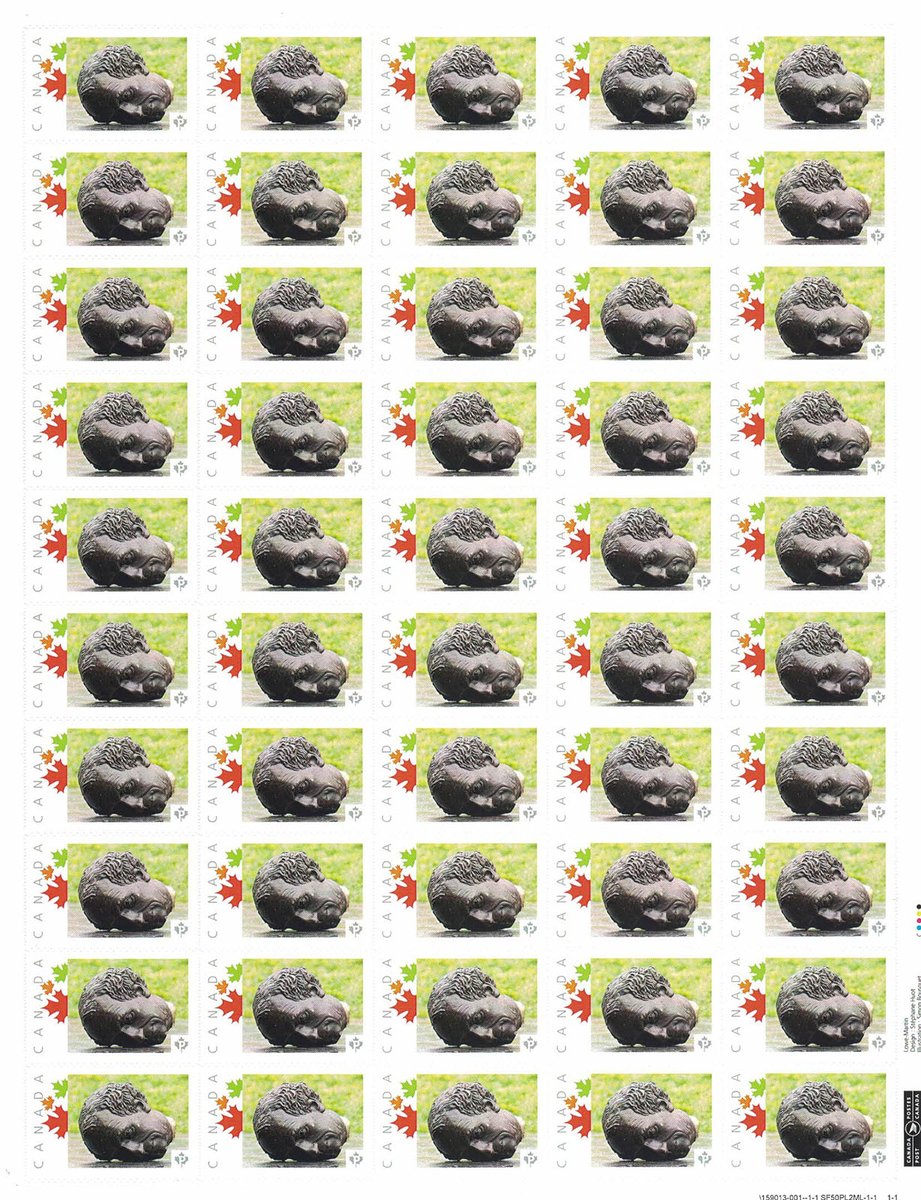Canada Post is apologizing after a sheet of stamps was printed showing the severed head of a John A. Macdonald statue that was recently toppled in Montreal.

The sheet of stamps was printed through the postal service’s Picture Postage program, which allows people to order stamps with personalized photos for a fee.
The man who ordered the stamps, a federal employee, said he made the order as a protest against colonialism.
James Bone originally tweeted out a picture of the stamp sheet Tuesday, asking people to retweet in solidarity. He promised to send individual stamps to people for free “if you or your ancestors were f***ed over by Macdonald.”
After getting several requests for the stamps, Bone tried to place another order for more sheets featuring the statue head — only to receive an email from Canada Post denying the request, saying the picture was “not appropriate for use” through the program.
Bone tweeted out a picture of the email while documenting his orders and pursuit for more stamps.
Canada Post also replied to Bone’s original tweet, explaining the stamp sheet “shouldn’t have been processed” and apologizing.
In a subsequent email to Global News, a spokesperson said Canada Post is investigating how the original stamp sheet cleared the approval process and was printed.

Get breaking National news
“We apologize and will take measures to ensure our vetting and approval processes are strengthened and closely followed,” the spokesperson said.

Bone did not respond to a request for comment. His Twitter account has since been deleted, along with his LinkedIn page, which said he works as an archivist for Library and Archives Canada.
The image shows the head of a bronze statue of Macdonald that separated from its body after it was toppled by protesters in Montreal on Aug. 29.
Images posted on social media showed the statue had been decapitated on the ground and sprayed with graffiti. Videos showed protesters cheering as the head popped off following the statue’s removal.
The protesters were calling for the defunding of police services in the wake of recent police-involved deaths of Black and Indigenous people in Canada and the United States, which has opened a larger debate about systemic racism in both countries.
Macdonald, while regularly memorialized as Canada’s first prime minister, was also responsible for the widespread mistreatment, displacement and forced assimilation of Indigenous peoples during Canada’s founding. He regularly referred to those people as “savages” — even during Parliamentary debates — and paved the way for the creation of the residential school system, prompting modern activists to argue for the removal of statues and other public memorials to him.
Macdonald’s defenders, meanwhile, point to his achievements securing Canada’s unity, including overseeing the completion of the Pacific Railway that connected the country from coast to coast. He also secured the incorporation of several provinces, including British Columbia and Manitoba.

In 2018, a statue of Macdonald was removed from the steps of Victoria City Hall in British Columbia, while other memorials have been defaced and vandalized since then.
Prime Minister Justin Trudeau and other government figures condemned the Montreal statue’s destruction. Alberta Premier Jason Kenney called for the statue to be shipped west to stand outside the legislature in Edmonton.
The City of Montreal removed the statue the day after the protest as officials worked to determine the best course of action moving forward. Montreal police say no arrests have been made to date.
- Tumbler Ridge B.C. mass shooting: What we know about the victims
- Trump slams Canada as U.S. House passes symbolic vote to end tariffs
- ‘We now have to figure out how to live life without her’: Mother of Tumbler Ridge shooting victim speaks
- Mental health support after Tumbler Ridge shooting ‘essential,’ experts say









Comments
Want to discuss? Please read our Commenting Policy first.